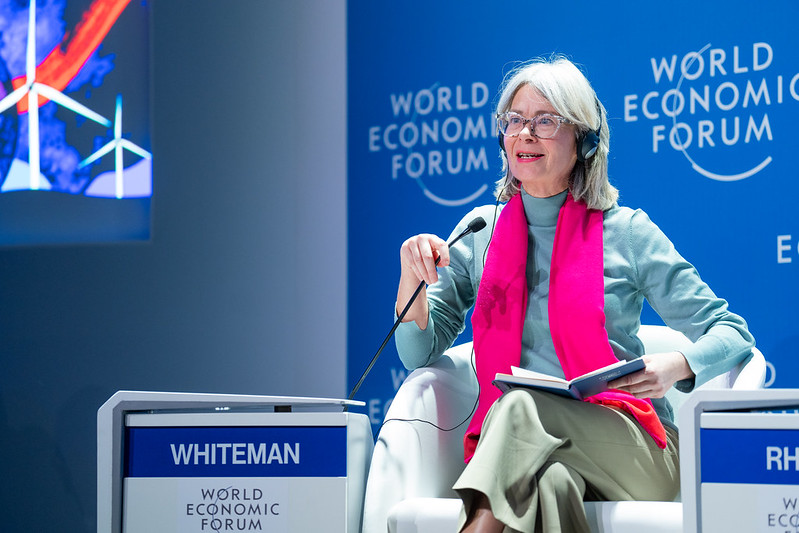World Economic Forum must lead action on polar crisis

Image credit: World Economic Forum / Boris Baldinger
The World Economic Forum must kick-start meaningful action to tackle the polar crisis, an Arctic expert says.
Gail Whiteman, founder of Arctic Basecamp and Professor of Sustainability at the University of Exeter Business School, says The Forum has a “unique opportunity to convene the power of its members”.
Professor Whiteman calls for a dedicated World Economic Forum project to focus on the climate-driven changes happening in polar regions, which have dramatic effects across the globe.
She will speak today (Tuesday) at The Forum in Davos, Switzerland, on a panel with HSH Prince Albert II of Monaco, Áslat Holmberg, President of the Saami Council, and Professor Johan Rockström, Director of the Potsdam Institute for Climate Impact Research.
“Instead of thinking about the poles as distant, faraway lands, we need to think of these more like a control centre for climate risk,” Professor Whiteman will say.
“The more decision-makers – people like you in this room – understand the Arctic and Antarctic, the better we can enhance understanding of global climate risks and action.”
The Arctic is warming four times faster than the rest of the world, and since the first World Economic Forum in 1971 Arctic sea ice has declined by 50%.
“Sea ice is one of the world’s big insurance policies against runaway climate change,” adds Professor Whiteman.
“But the Cryosphere report released at COP27 says that the loss of summer sea ice in the Arctic is now inevitable.”
Today Arctic Basecamp launches a new “polar dashboard” that curates the latest scientific information this to growing risks and climate events worldwide.
More than 50 events are already listed, including floods in Nigeria, Pakistan and Australia, a cyclone in Japan and a drought in Germany.
“The main reason why I – as a business school professor – am talking to you today is because of the way the poles drive global risks to the world economy and the way we do business and live our lives,” Professor Whiteman will say.
“First and foremost, we need to cut emissions in half by 2030. Above the 1.5C target, more and more polar tipping points become likely.
“If we don’t adopt deep emissions cuts, then sea level rise becomes a reality for major cities and coastal communities around the world, in addition to a host of other risks to food and water security, extreme weather, loss of critical biodiversity, all of which ramp up business risks and massive supply chain disruptions.
“If we want to unlock the polar crisis, it’s not enough to just raise awareness in today’s session amongst all of you.
“The World Economic Forum has the unique opportunity to convene the power of its members.
“In my opinion, what we need is to kick-start a dedicated Polar project to continue this work. And we must start today.”



